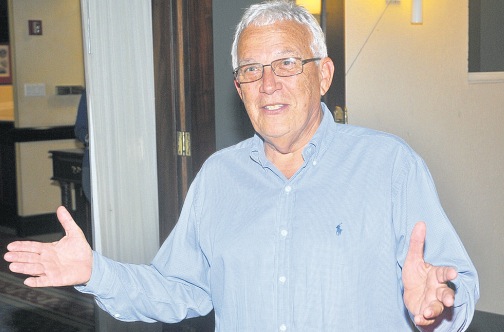A common phenomenon in management has to do with a tendency to promote employees who are doing remarkably well in their current role rather than promoting them on the evidence of their ability to perform in the intended position. Invariably, these employees fail to perform effectively after promotion and so that brings an end to their promotion. Many consider this to be a process of managers rising to the level of their incompetence.
The evidence of this phenomenon is widespread in management today. Not all cases that appear to be consistent with the classic Peter Principle is in fact entirely so, however. A very common cause for failure has to do with employees who are promoted from a particular rank to a position where they must now supervise their former colleagues in the rank from which they came. This happens quite frequently in sales where star performing salespeople are promoted to sales management.
In the example at hand, the promoted sales manager must not only contend with the new requirements of management as a skill but must also relate to the challenge of managing his former team members. While together as sales personnel, they shared the same issues against management. They fought for the same things and relied on each other for support at the level of teammates. Several of those roles and perspectives will change radically now as sales manager.
One of the main challenges the new sales manager will have is to overcome the criticism by his subordinates that he is now making unreasonable demands on them. They will make statements to the effect “he was recently among us and should know better”. They will have difficulty accepting the sincerity of the new sales manager considering that only recently he probably took positions that were contrary to a salesman.
The new sales manager will have his own emotional set to contend with as he seeks to negotiate his new position. It will be difficult for him not to feel some sympathy for his former colleagues with whom he worked in the trenches. As much he would like to assert his managerial demands, he is intensely sensitive to the challenges they face. Quite often this sympathy for former colleagues get in the way of effective management.
There is a view that the same phenomenon outlined here applies to the Jamaican government’s appalling performance in its fight against crime. This has to with the colonial into postcolonial experience and dynamics. The reality of the colonial days saw the colonial masters crafting the legal framework and the law enforcement mechanism of the country. To many, it was just one arm of the oppressive machinery that was being used to subdue and exploit the former slaves.
Independence heralded the end of the colonial rule and moved the control of law enforcement to the newly formed self-rule government. It was now down to the newly formed government to start policing their own. The emerging view is that the government started off acting soft on law enforcement out of fear that to do otherwise could result in it being accused of continuing the oppressive rule of the former colonial masters. This is being held out by many as the reason for the parlous state of crime and violence.
When closely examined, there appears to be some modicum of truth to the view that the government has been traditionally soft on crime. One might be inclined to counter that even if the government has been soft on crime to some extent, they have not been soft on such crimes as homicide, which is now our main area of concern. The fact, however, is that crime breeds crime. In other words, when law enforcers turn a ‘blind eye’ to certain crimes, it emboldens the lawbreakers to higher levels of crime.
The phenomenon of individuals being timid to manage their former colleagues and in this related assumption where the government is suspected of being soft on its own is deserving of special strategic attention. The corporate response to this phenomenon has been a manifest reluctance to promote from within. Salespeople with clearly demonstrated talent to perform at the level of sales management are being passed over out of fear that they would not be effective due to sympathy.
So we are where we are. Crime in Jamaica is at an unacceptable level and must be reduced. The government is compromised out of fear of being viewed as oppressive with any attempt at coming down strict against crime. This is a real dilemma that must be resolved. In strategic terms, we need a culture change. Had our country been a company, we would simply change management, which for country it would be changing government. The issue, however, is that there is no distinction between the respective government on this issue.
The first step in changing the culture in an organization is to understand it. Why do people believe and do the things they do under that culture? What will be the personal consequences of this culture change considering where it is that you are seeking to go? In the case of the Jamaican government, crime, and the citizens, the situation is a bit confused. All of Jamaica would welcome a reduction in major crime including homicide so what is the basis for the government to get tough?
In the corporate world, management is concern about the revenues and profit consequences of their actions. In the case of government, however, they are largely concern about the political consequences. The strategic analysis done repeatedly by the various government reveals that the poorest people in the country (who coincidentally make up the largest voting block) are the most vulnerable in any program that is intended to significantly reduce crime. The government is not expected to aggravate that.
By Ronnie Sutherland

 Businessuite Women2 weeks ago
Businessuite Women2 weeks ago
 Businessuite News244 weeks ago
Businessuite News244 weeks ago
 Businessuite News24 International4 weeks ago
Businessuite News24 International4 weeks ago
 Businessuite News243 weeks ago
Businessuite News243 weeks ago
 Corporate Feature4 weeks ago
Corporate Feature4 weeks ago
 Businessuite News245 days ago
Businessuite News245 days ago
 Business Insights2 weeks ago
Business Insights2 weeks ago
 Businessuite Markets3 weeks ago
Businessuite Markets3 weeks ago



















